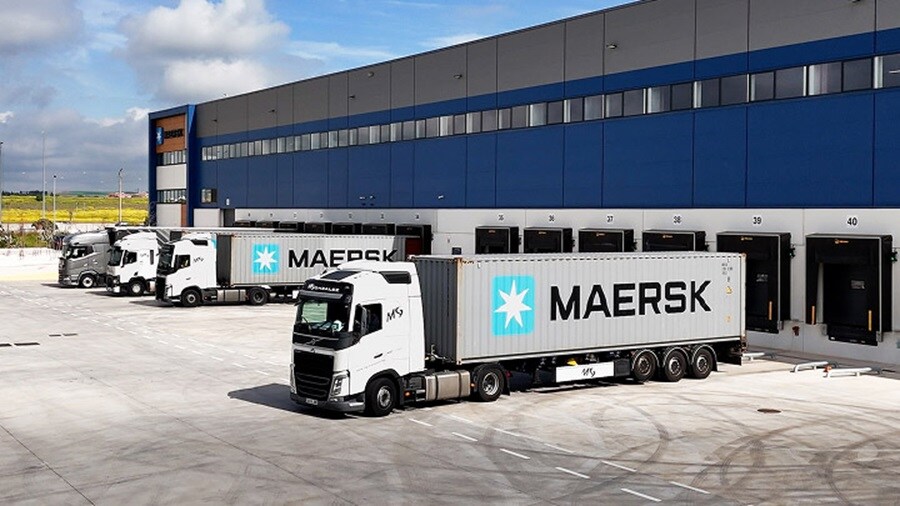From computers and smartphones to cars and trains, semiconductors are everywhere. The global semiconductors – or ‘microchips’ – market was valued at about US$611bn in 2023, and it is projected to grow to more than US$2tn by 2032.1
But despite the scale of the global market, semiconductor manufacturing, design and packaging is concentrated in east Asia, and particularly in Taiwan, South Korea, China and Japan, meaning that global supply is vulnerable to disruptions in these markets.2
The Covid-19 pandemic and natural disasters have caused major disruptions in semiconductor supply chains.3 This is particularly true of the automotive industry: more than 11 million vehicles were removed from production in 2021 because of semiconductor shortages.4
Our research, based on a survey of 500 global business executives in the technology sector revealed that semiconductor businesses are acutely aware of the impact of semiconductor procurement challenges. Through further analysis, it became apparent that many do not fully recognise the strategic opportunity of effective supply chain and logistics management. This blind spot could be a problem: our research shows there is correlation between effective supply chain management and improved business outcomes.

Supply chain and logistics is an underrated strategic opportunity
Delivering products or services without delay or interruption is crucial to supply chains because it ensures customer satisfaction and minimises financial losses. In our research, 73% of surveyed businesses with self-reported high-reliability supply chains report a rise in revenue over the past three years, compared with only 49% of companies that have low-reliability supply chains.
Considering recent semiconductor shortages, it is no surprise that supply chain reliability (delivering products and services on time, in the right quantities, and at expected levels of quality) ranks second among the priorities of semiconductor businesses for the next 12 months. It is second only to cost control (42%), which is the top priority for every sector.
However, despite the importance of high-performing supply chain and logistics, our research shows that many semiconductor businesses may not be prioritising this. Just 33% say that supply chain and logistics is a source of competitive advantage, compared with 52% of businesses in the other technology sub-sectors we surveyed. And only 47% of semiconductor businesses say that a well-functioning supply chain and logistics helps to deliver growth, compared with 54% of businesses in other sectors.
Although the size of semiconductors means that supply chain and logistics can represent a small portion of a business’s overall costs, our findings suggest that semiconductor businesses are overlooking their strategic importance.

There are risks to the supply chain – but also remedies
The concentration of the semiconductor industry in East Asian markets mean that semiconductor businesses put geopolitical tensions top of their list of threats. And there is a broader trend towards protectionism as more countries try to reduce their dependency on a single country or region and bolster domestic supply.
Although semiconductors were invented in the US, today it only produces about 10% of global supply and none of the most advanced chips.5 In August 2022, President Biden signed the CHIPS and Science Act, which will assign funding designed to boost the manufacturing of and research into semiconductors in the US. In the EU, global production capacity of semiconductors is also below 10%. The European Chips Act aims to double that and to secure the EU’s supply by boosting domestic production.6
According to our research, semiconductor businesses appear to have stringent processes in place to counter potential supply chain risks. For example, 44% of semiconductor businesses say they have a robust process for supply chain and logistics risk management and scenario analysis to improve their oversight of supply chain and logistics issues – compared with 38% of businesses in other sub-sectors. However, 44% is still a minority of semiconductor businesses.
Semiconductor businesses are also using emerging technologies to improve demand forecasting and gain a competitive edge. AI tools, for instance, can analyse large amounts of data and help to identify and mitigate potential bottlenecks so that companies can optimise their inventory levels and streamline processes.
Semiconductor businesses appear to be ahead on AI adoption, but they need to keep up their momentum: 36% say they use AI and machine learning for supply chain and logistics, compared with 24% in the other sub-sectors. And 32% use cloud computing compared with just 24% of businesses in the other sub-sectors.

Powering the world takes collaboration
Supply chain transparency depends on the exchange of information between organisations and their suppliers, and our research suggests that semiconductor businesses are trying to build a stronger ecosystem for their networks.
Half of them (50%) say that collaboration with partners is essential to resolving major, long-term supply chain and logistics challenges. But this is 12 percentage points lower than businesses operating in other technology sub-sectors.
When key performance indicators (KPIs) of a supply chain team are aligned with wider corporate strategy, the decisions of that team contribute to the overall goals and objectives of the organisation. Businesses in the semiconductor industry are more likely than those elsewhere to say there is alignment between the KPIs for supply chain executives and the overall strategic objectives of the business: 44% of semiconductor businesses say there is a large degree of alignment, compared with 37% of businesses in other sub-sectors.
Semiconductor manufacturing is a highly skilled industry, and as chip design becomes more complex and the market continues to expand, competition is intensifying for the right talent.7 In this innovative sector, R&D is crucial and businesses will need to lean on their supply chains to succeed. But about half of semiconductor businesses (51%) say it is very difficult to agree and execute collaborative innovation projects with partners contractually, compared with 44% of businesses in other sub-sectors.
This appears to have reinforced the importance of certain skills among semiconductor businesses in our research. After risk management, collaboration and communication are cited as priority skills and expertise among 39% of semiconductor businesses, for instance, compared with 30% of other types of businesses.
Our research suggests that semiconductor organisations do not see the importance of supply chain and logistics in the way that other technology sub-sectors do. But semiconductors power the world, and a globally competitive market requires resilient and reliable supply chains that can withstand the next shortage or disruption – whenever it comes.
To learn how your supply chain and logistics function can be a strategic enabler of success, read our full report - The key role of supply chains in business performance.

About FT Longitude
FT Longitude is a specialist thought leadership agency, owned by the Financial Times, working with a wide range of the world’s most prestigious B2B brands across Europe, the US and Asia-Pacific. FT Longitude’s 80+ clients are concentrated in the professional services, financial services, and technology sectors, but also stretch into energy, infrastructure, manufacturing and other industries. Headquartered in London, the company was founded in 2011 and was selected as one of Chief Marketer 200, Top Marketing Agencies of 2020, an Inc. 5000 Europe in 2018, an FT 1000 company in 2017, and a 2016 Leap 100 high growth UK company by City A.M. and Mishcon de Reya. It is led by founders Rob Mitchell (CEO), James Watson (COO) and Gareth Lofthouse (Chief Revenue Officer). For more information: visit longitude.ft.com.
How can you be ready for anything?
Instability is on the rise, causing logistics to feel the pressure of the constant disruptions. Is your business resilient enough? Do you know what it takes to build resilient supply chains in today's world?
Learn how Maersk can help with logistics resilience.
Sign up to The Logistics Pulse newsletter
You did it, welcome onboard!
We're sorry, but there was a problem sending your contact request.
Please review the form fields and ensure all required information is provided correctly. If the issue persists, please contact our support team for further assistance.
Sign up to The Logistics Pulse newsletter
Receive our insights directly in your mailbox by signing up through this form and enter a world of truly integrated logistics. Get inspired by our selection of articles that help you navigate supply chains, understand industry trends, and shape your logistics strategy. You can unsubscribe anytime.
I agree to receive logistics related news and marketing updates by email, phone, messaging services (e.g. WhatsApp) and other digital platforms, including but not limited to social media (e.g., LinkedIn) from A. P. Moller-Maersk and its affiliated companies (see latest company overview). I understand that I can opt out of such Maersk communications at any time by clicking the unsubscribe link. To see how we use your personal data, please read our Privacy Notification.
By completing this form, you confirm that you agree to the use of your personal data by Maersk as described in our Privacy Notification.













